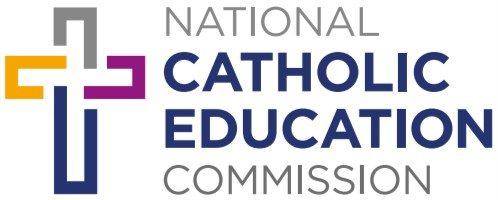I have just recently returned from Rome where thousands of educators from across the world came together for the Jubilee of the World of Education. It was a privilege to be present and to celebrate Catholic education with colleagues from across the world. In and around the Jubilee we were able to hear from some world leading speakers, participate in panels and engage with national and international leaders on education and the Catholic church.
I came to be in Rome at this time as part of the International Office of Catholic Education (OEIC) where I represent Australia. The council is a mechanism for Catholic education in various countries to connect and to share their approach to challenges and opportunities. What strikes me each time I meet with my international colleagues, is the strength of the Australian education system which receives reasonably fair government funding with gratitude and enjoys legislative protections to practice our faith. While never taken for granted, funding and religious freedom is too often used as a divisive wedge in educational commentary. What is obvious, when meeting with our international counterparts is that our Australian educational system, predicated on choice and freedom of religion, should be fiercely protected.
The Jubilee of Education adopted a theme – Constellations of hope– to reflect the many stars that make up Catholic education and the promise of the future. We were very proud to see the Victorian Catholic Education Authority (VCEA) Chief Executive Officer, Professor Elizabeth Labone, present in the constellations project hall on the landmark research commissioned by VCEA into the Lifelong benefits of Catholic schooling. This research using the Australian Government’s Household, Income and Labour Dynamics in Australia (HILDA) survey has found students who attend Catholic schools are:
- More likely to be employed;
- Earn higher wages;
- Be more likely to be working in an industry or sector that directly benefits the public;
- Have higher life satisfaction;
- Have better general health; and
- Be more likely to donate to charity.
It was wonderful to spend time chatting with Catholic educators about this important research and sharing the benefits of our educational system with people from around the world including Cardinal Josè Tolentino de Mendonça, the Prefect of the Dicastery for Culture and Education.
A highlight of the Jubilee of Education was undoubtedly the opportunities to hear from the Holy Father. At an audience for educators we were blessed to hear from Pope Leo XIV, himself a teacher, about the importance of education and the call for our mission to focus always on interiority, unity, love and joy. I have linked here Pope Leo’s address and I encourage you to take a moment to read it. As educators it is a beautiful expression of what sits at the heart of our calling to contribute to Catholic education and our shared path of ‘mutual growth and enrichment’.
In his homily at the Eucharistic mass for the conclusion of the Jubilee of the World of Education, Pope Leo spoke about hope in moving terms:
“The Jubilee is a pilgrimage of hope, and all of you, in the great field of education, know well how much hope is an indispensable seed! When I reflect on schools and universities, I think of them as laboratories of prophecy, where hope is lived, and constantly discussed and encouraged.”
The full text of the homily is available here.
Constellations of hope: Newman’s vision and the enduring light of Catholic Education
In declaring Saint John Henry Newman among the Doctors of the Church, Pope Leo XIV extolled the power of education to bring light to pessimism and fear referencing one of Saint John Henry Newman’s best-known texts, the hymn “Lead, Kindly Light.” Connecting to the theme, constellations of hope, Pope Leo XIV defined the task of education to offer light and to share the reasons for hope in today’s world. It was an uplifting and empowering message which I know our schools and teachers live authentically in their work.
Newman’s patronage affirms the enduring importance of a Catholic educational vision that nurtures both intellectual formation and the development of the whole person, grounded in faith, truth and the dignity of every learner.
The consistent message of holistic education is as relevant today in the plans, lessons, classrooms and conversations across our schools, as when articulated 60 years ago in Gravissimum Educationis. An immersive artistic and cultural installation hosted at Santo Spitito in Sassia, unpacked the ‘stars’ of Gravissimum Educationis into 12 statements which resonated deeply the fundamental characteristics of Catholic education:
- An integral education
- Educating Community
- The centrality of Family
- The primary role of teachers towards a formal, informal and non-formal education
- A Culture of Dialogue
- Freedom of educational choice
- Collaboration with local authorities and civil society
- Formation in active citizenship
- A Laboratory of Ecumenical and Interreligious Dialogue
- The opening of sacred sciences to the contemporary world
- The creative exploration of the heritage of Christian wisdom
- An international network for the academic exchange of knowledge and professors
The celebration of Catholic education, seeking not only academic excellence, but the awakening of conscience, imagination and hope in young people was central to the Jubilee of the World of Education and a joy to be a part of.
Jacinta Collins
Executive Director
National Catholic Education Commission
Photo: NCEC Executive Director Jacinta Collins, Prefect of the Dicastery for Culture and Education Cardinal Josè Tolentino de Mendonça & VCEA Chief Executive Officer, Professor Elizabeth Labone in Rome.
